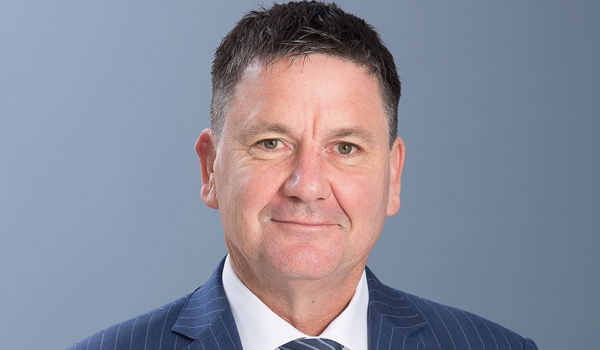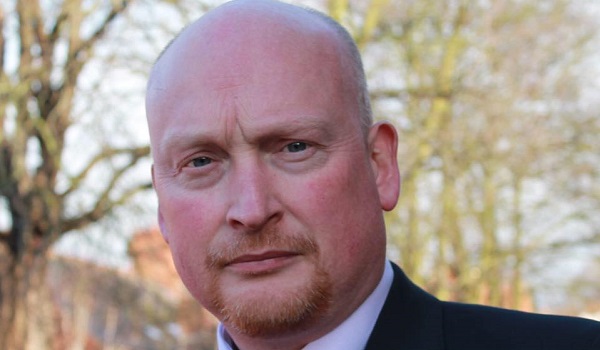Police must stop treating rape victims as suspects, says ICO
The Information Commissioner’s Office (ICO) has called on the police to immediately stop collecting excessive amounts of personal information from victims of rape and serious sexual assault cases.
Information Commissioner John Edwards said the use of Stafford statements in England and Wales, which provide police access to a victim’s information including school records, medical histories and social service data, must be halted immediately.
The call is one of a number of recommendations featured in a Commissioner’s Opinion, published today (May 31), which informs the sector how to use victims’ personal data in compliance with data protection laws.
Mr Edwards said: “Our investigation reveals an upsetting picture of how victims of rape and serious sexual assault feel treated. Victims are being treated as suspects, and people feel re-victimised by a system they expect to support them. Change is required to rebuild trust that will enable more victims to seek the justice to which they’re entitled.
“This work brings home why we do what we do at the ICO. This Opinion isn’t about data protection and data processing, it is about relationships, trust, human rights and human dignity.”
A statement issued by the ICO said: “Growing evidence suggests that as the sector fails to gain the trust and confidence of victims, their involvement in the process is not sustained. This has led to very low charge and conviction rates.
“This burden is also not shared equally, as victims of rape are more likely to be female, have a disability and identify as gay, lesbian or bisexual. The Commissioner believes his Opinion should contribute to improving victims’ confidence in the process.”
Mr Edwards added: “Change as a result of this report could have a greater impact on people’s lives than any other work my office has been involved with. I know the sector will support these recommendations. Change is possible and it must happen. The law requires it and my office will push for it. Most importantly, it is what people affected by these heinous crimes have a right to expect.”
Claire Waxman, London’s Victims’ Commissioner, said: “Today’s report from the Information Commissioner makes sadly familiar reading and the message is clear: the justice system is asking too much of rape victims and denying them justice.
“I originally called for this investigation after hearing about the invasive and disproportionate requests being made of victims and the lack of support in understanding their privacy rights, making rape victims feel like they were the ones on trial and forcing them out of the process. I am yet to see a case where primary school records or counselling notes hold any relevant information, yet these requests are regularly made.
“The findings of this report, and many others, show that more must be done to safeguard rape victims’ privacy.”
Jayne Butler, chief executive officer for Rape Crisis England and Wales, said: “For far too long the police and Crown Prosecution Service (CPS) have been requesting, and at times, demanding unreasonable and excessive amounts of personal data from rape victims and survivors. It feels like to report a rape is to effectively give up your right to privacy: to expect justice you must expect scrutiny.
“The Commissioner’s recommendations have the potential to drastically improve the experiences of victims and survivor’s going through the criminal justice process. If implemented, these changes could support the police and CPS to prioritise victims’ rights and ensure they have a voice.”
The Victims’ Commissioner for England and Wales, Dame Vera Baird QC, said: “I welcome this well researched and carefully considered analysis. Excessive intrusion into irrelevant and deeply personal data of rape complainants has become habitual in the justice system, despite my and others’ vocal protests over many years. Commissioner Edwards cites the deep personal impact this can have on rape complainants and I share his view that this has played a crucial role in the collapse of rape prosecutions.
“I am pleased we now have the authority of this key report to add to my own calls on the CPS and the police to immediately stop the excessive and over-intrusive requests for personal data. The Government must now legislate to limit the pursuit of third-party material in the Victims’ Bill.”
Assistant Chief Constable Timothy De Meyer, National Police Chiefs’ Council (NPCC) lead for disclosure, said: “The Opinion report released by the ICO includes a number of recommendations to the NPCC, including work already underway to improve our response to victims of rape and sexual assault. We accept these recommendations and will continue to strive to protect privacy whilst observing the absolute right of defendants to a fair trial.
“In September 2021, we launched the Digital Processing Notices (DPNs) and the College of Policing also produced Authorised Professional Practice that set out the approach forces should take when seeking to access personal data on the devices of victims and witnesses.
“These notices put into practice a Court of Appeal judgment and were produced after careful consultation with victims groups. The NPCC has also been consulting with the ICO, Victims Commissioner, CPS and other stakeholders to produce Third Party Material Information Notices. These notices will address the recommendations in the ICO opinion and will enable a fair and consistent approach to third party material across forces. The notices are due to go out for wider stakeholder consultation in June.
“Policing recognises that more must be done to see the response to rape and sexual offences improve. We are committed to this and are working closer than ever with the CPS and partners across the criminal justice system.”
A CPS spokesperson said: “Prosecutors and investigators are asked to carefully consider when it may be necessary to seek a complainant’s personal data.
“Both the law and our guidelines set out clear parameters police and prosecutors must follow when making requests – they must be specific and only sought when necessary. Defence should be passed this information only to comply with our legal obligations where information is capable of undermining the prosecution case or assisting the suspect.
“We are working jointly with police and criminal justice partners to get this right and rebuild confidence, by providing early advice to focus the investigation on relevant lines of inquiry and looking at the suspect’s behaviour before, during and after the alleged incident.”
A Home Office spokesperson said: “We must ensure that victims and witnesses are confident they will be treated with sensitivity and dignity when reporting crimes and that their rights to privacy are protected.
“That’s why we strengthened the law which covers requests for digital information, to ensure that victims are only asked for their phone where necessary and proportionate, and funded £5 million of new technology for 24 police forces to help meet our rape review commitment that no adult rape victim will be left without a phone for more than 24 hours.
“We will also shortly be launching a public consultation on police requests for personal information, such as medical or education records, to understand more about the problems in this area and to test possible solutions.”
Rebecca Hitchen, head of Policy and Campaigns at the End Violence Against Women Coalition (EVAW), said victims’ past experiences – whether that is a history of engaging in therapeutic support, incidents at school or medical treatment they have received – were “not relevant” in establishing whether or not a perpetrator has assaulted them.
“These practices in fact reflect and reinforce cultural attitudes that victims are in some way to blame for what happened to them,” she added.
“It is appalling that these myths, stereotypes and biases are not acknowledged and addressed within our justice agencies.
“Instead, they go unchecked and inform the daily practice of those who hold power to gatekeep a victim’s right to justice.
“As it stands this report is completely at odds with the CPS decision last week to lower the bar for disclosure and the sharing of counselling notes, further weakening any sense of privacy that victims have ( see https://www.policeprofessional.com/news/new-cps-guidance-will-block-rape-victims-from-therapy-say-campaigners/).
“We call on police leaders, the CPS and the Attorney General’s Office to heed the Information Commissioner’s warning and urgently show how they are addressing this breach of survivors’ rights.”
Nogah Ofer, a solicitor at the Centre for Women’s justice, CWJ said: “Whilst we welcome the Information Commissioner’s recognition of the scale of the problem and the clear guidance that police must stop using open ended consent to disclosure forms, unfortunately we consider the guidance overall is not sufficiently clear.”
Harriet Wistrich, director of CWJ, added: “What is needed is clear unequivocal guidance that police and prosecutors should not be seeking to trawl rape survivors’ personal data looking for anything that may undermine their credibility. That is not done with any other crime. The new guidance will not achieve the protections that rape survivors need, or restore their faith in the system.”







